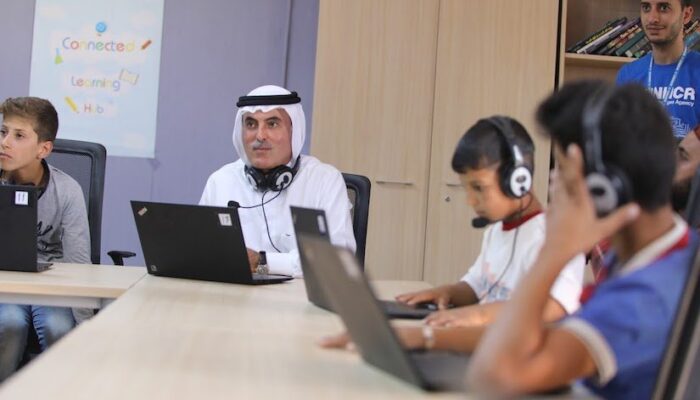The Role of Technology in Refugee Education
The Covid-19 pandemic has brought increased attention to education technology (EdTech). Refugees worldwide in particular have suffered a disproportionate amount of harm as one outcome of the pandemic, exacerbating already existing challenges. Now, as-and-when schools reopen, refugee children and youth are more likely than others to stay out of school; or if they do, may drop out quickly.
It was against this background that the Abdulla Al Ghurair Foundation for Education, Save the Children, and the EdTech Hub hosted a roundtable discussion that brought together global education stakeholders from diverse perspectives and geographical locations to assess the past two years and the role of EdTech in refugee education. We agreed that EdTech could be a vital part of the solution to equitable refugee education. We must continue efforts towards ensuring technological infrastructure, localizing digital solutions, and systematized customization of education for all learners. The roundtable outcomes were summarized with seven call-to-actions that can contribute to the global discourse on EdTech and refugee education. Those actions have been captured in an outcome paper titled “High, Low, or No Tech? A Roundtable Discussion on the Role of Technology in Refugee Education” [pdf].
As the paper suggests, we have sufficient evidence based on empirical cases from the academic, research, and practitioner communities. We are starting to understand what can work best to have a positive impact in refugee education in a connected world. It is high time that we prepare our education systems to better respond to shocks and disruptions that affect education. We must leverage the benefits of EdTech as one of the fundamental ways to make a lasting impact on refugee education.
